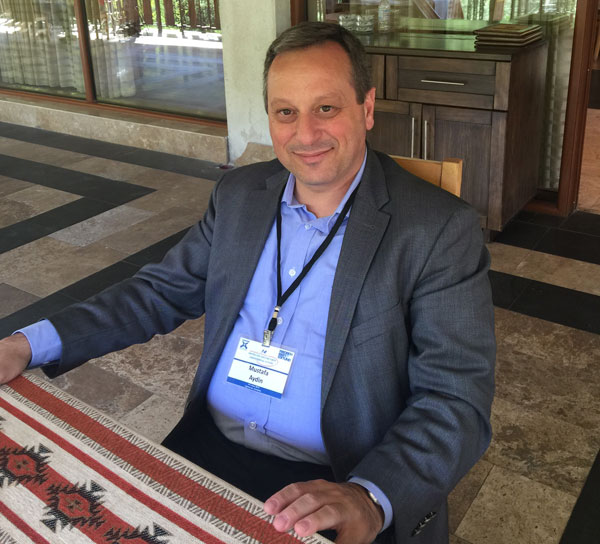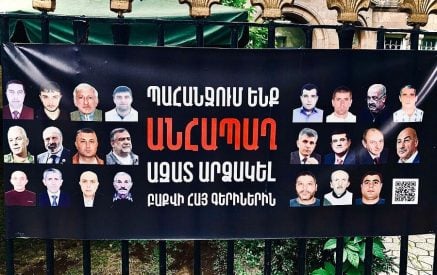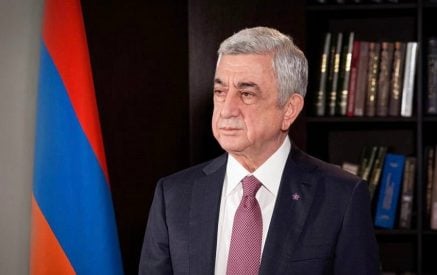According to the Rector of Kadir Has University in Istanbul, Mustafa Aydın, however, it is extremely important to make at least some movement
– Mr. Aydın, what are the sentiments in the Turkish society and Turkish government on the settlement of relations with Armenia? Do the stances of the public and the government strongly differ from each other?
– It is not very clear cuts as such. Part of the Turkish society is willing to develop relations with Armenia without any preconditions, some part of the society is on the other extreme and they don’t want any relationship at all. And the government is, I think, somewhere in-between. They tried to, in previous years, develop, but at certain point Azerbaijani influence was quite important, and the current president and the prime minister made this decision to stop the development. At the moment, my feeling is that they have to wait and see the elections and the results and then the government to speak but currently the president is repeating his position regarding the border, he is saying that the border cannot be opened unless the Nagorno-Karabakh problem is solved. And he is a good politician, he knows what public generally think. If he is talking like that, I would assume that there is a sizable majority in Turkey who would be on that line, that’s why he is taking this position. But you know, in civil society, you have groups who are advocating for improvement of the relationship with Armenia as well.
– Turkey was in the pre-election campaign up to June 7. Often, a viewpoint was voiced that the Turkish government’s posture may undergo changes after the elections on June 7, when the April 24, the centenary of the Armenian Genocide, would already be in the past, and it would be possible to undertake new steps towards normalization of relations between Armenia and Turkey. Do you see such a possibility from the Turkish side?
Read also
– Yes, I think so. I think April 24 was a kind of watershed, it is behind now, so people can look front and try to develop new ideas and may be as of cooperation. I think the new government after the elections would be established by the end of August, then we will have the new parliament in September, I think after that, on October onwards, there is a possibility of renewing negotiations, maybe, talks. I know there are at times from civil society to start something between at least two nations if not two states, So, I am hopeful that something might be developing in the autumn again.
– To what extent did the relations with Azerbaijan called “brotherly” prevent Turkey in the normalization of relations with Armenia? One gets the impression that Turkey seems to become a captive in protecting Azerbaijan.
– I think the situation is much more complex than just to say that Turkey is a kind of hostage to Azerbaijan. It’s way too simple they are looking to the things. Of course, it’s not only brotherly relationship, that is also part of it and affects the part of the society, but beyond that, there are important strategic, economic and political dimensions. There is a huge investment of Azerbaijan and Turkey, there is a huge cooperation on the pipelines, gas and natural gas and oil, the two countries are cooperating closely on international affairs, and, of course, there is this affinity, brotherhoods, and everything. So it’s important that it is not one case, it is not that Turkey does not want to upset Azerbaijan but it also goes beyond that, it’s not that simple. At the end, when you have to make this kind of decision, you judge, you give this and you take this or you lose, this kind of things, and you do this kind of judgment, then Azerbaijani interests outweighs the Armenian interests in Turkey, let’s say, we upset Azerbaijan and go ahead with Armenia, then the benefits to Turkey are limited and what we are going to lose is quite high. I think that kind of calculation leads to Azerbaijan influence on Turkey about Armenia.
– Consequently, Turkey will not open the border with Armenia without the Karabakh conflict settlement…
– I think that Turkey’s preconditions on Turkey’s position was agreed in the protocols. So, the protocols show the way that Turkey to open the border. The additional idea from the president comes from regarding the Karabakh. I don’t believe myself that the solution of the Karabakh is necessary, but what is necessary is some movement towards the solution, so a kind of negotiation between Azerbaijan and Armenia, maybe a small gesture, so this kind of movement, not the final solution but the movement would allow Turkey to turn to Azerbaijan to say, look, you are already moving, so let us move this side and it will help Turkey to open the border but all the other elements are in the protocols anyway, so we do not need to go into the details, I don’t think there are any more conditions beyond the protocols. He is the president, he is not the leader of the government and after the elections, we do not know how more powerful or less powerful he is going to be, so it depends on that, if he is going to be less powerful, and if the government might have a different position and if he is going to be as powerful as today, then he has the promise to keep, he made a promise.
– For a long time, the discussion of the Armenian Genocide was excluded in your country, as if it was placed under a taboo, now, the situation is changed and there is no shortage of discussions in your country on this subject. Is it possible for the Turkish authorities to apply for some movements on settlement of Armenia-Turkey relations resulted by domestic, public pressure? Is such a thing possible in Turkey? Can such a demand be formed?
– I don’t think so. It used to be the kind of, one of the taboos let’s say not to discuss in Turkey, people never discussed it and did not know much about it, but it is not any more a taboo, it is being discussed openly what happened in 1915 or thereabouts, and some people call it a genocide, others call it something else. In general, in the society, there is a resistance, a general understanding that terrible things happened, but to call it is a different matter, I don’t know a research, I have not done a research on this, but I would say that 95 percent, may be more than 95 percent of the population would not accept to call it as a genocide, but they would accept that terrible things happened and let’s look at it and talk about it. Sometimes the international pressure makes it even more difficult to talk this kind of issues because when there is an international pressure, it becomes a national issue, a pride, and problems, and it becomes even more difficult. Especially about improving relations with Armenians and Armenia, there is more and more support for that.
EMMA GABRIELYAN
P.S. The interview with Mustafa Aydin was conducted before the parliamentary elections
“Aravot” daily
09.06.2015























































